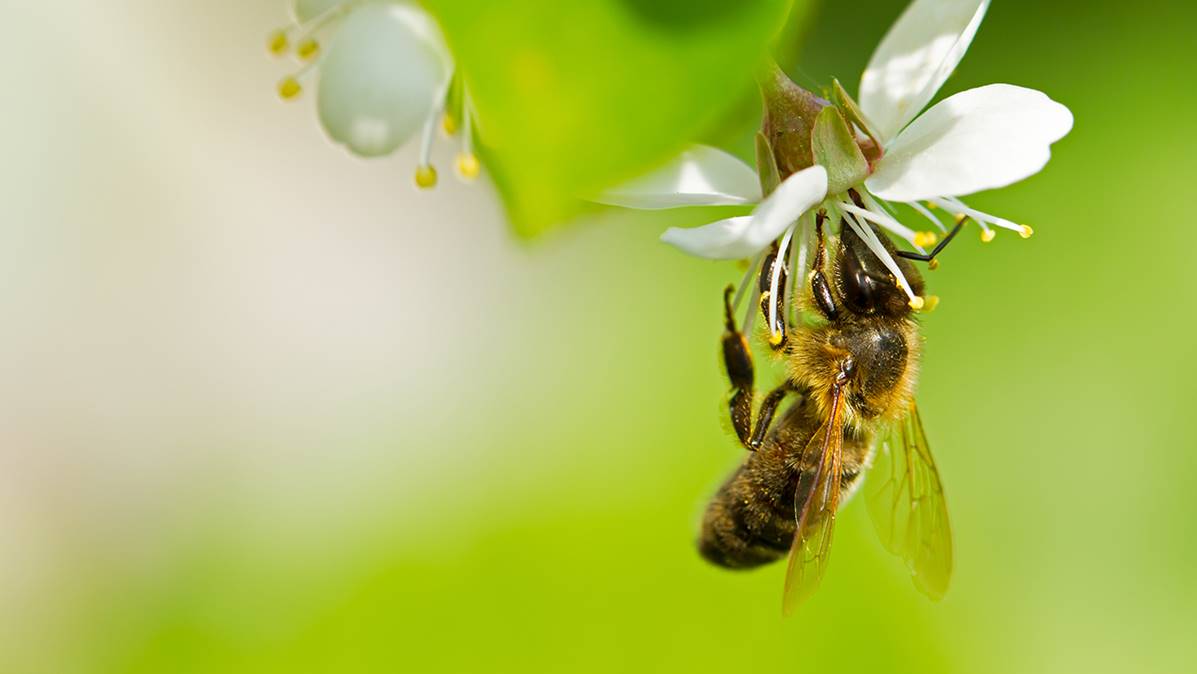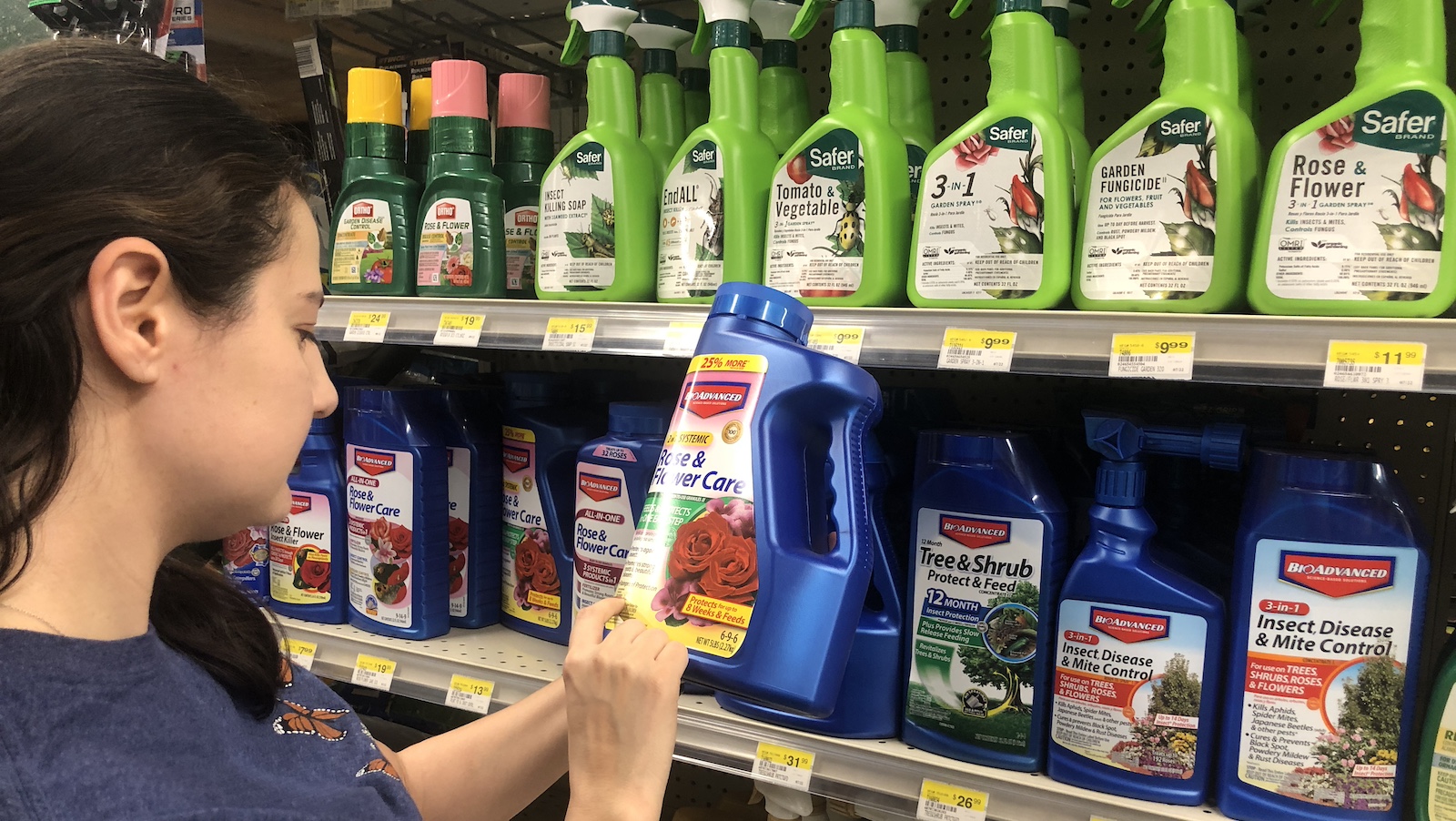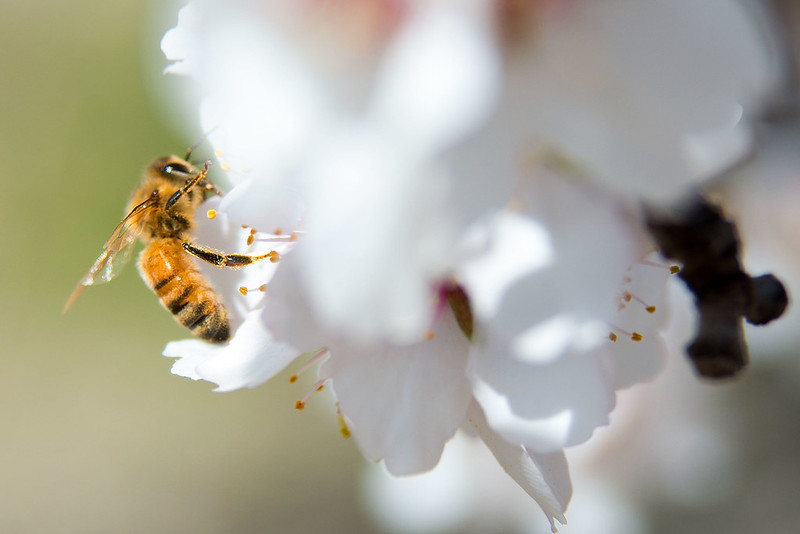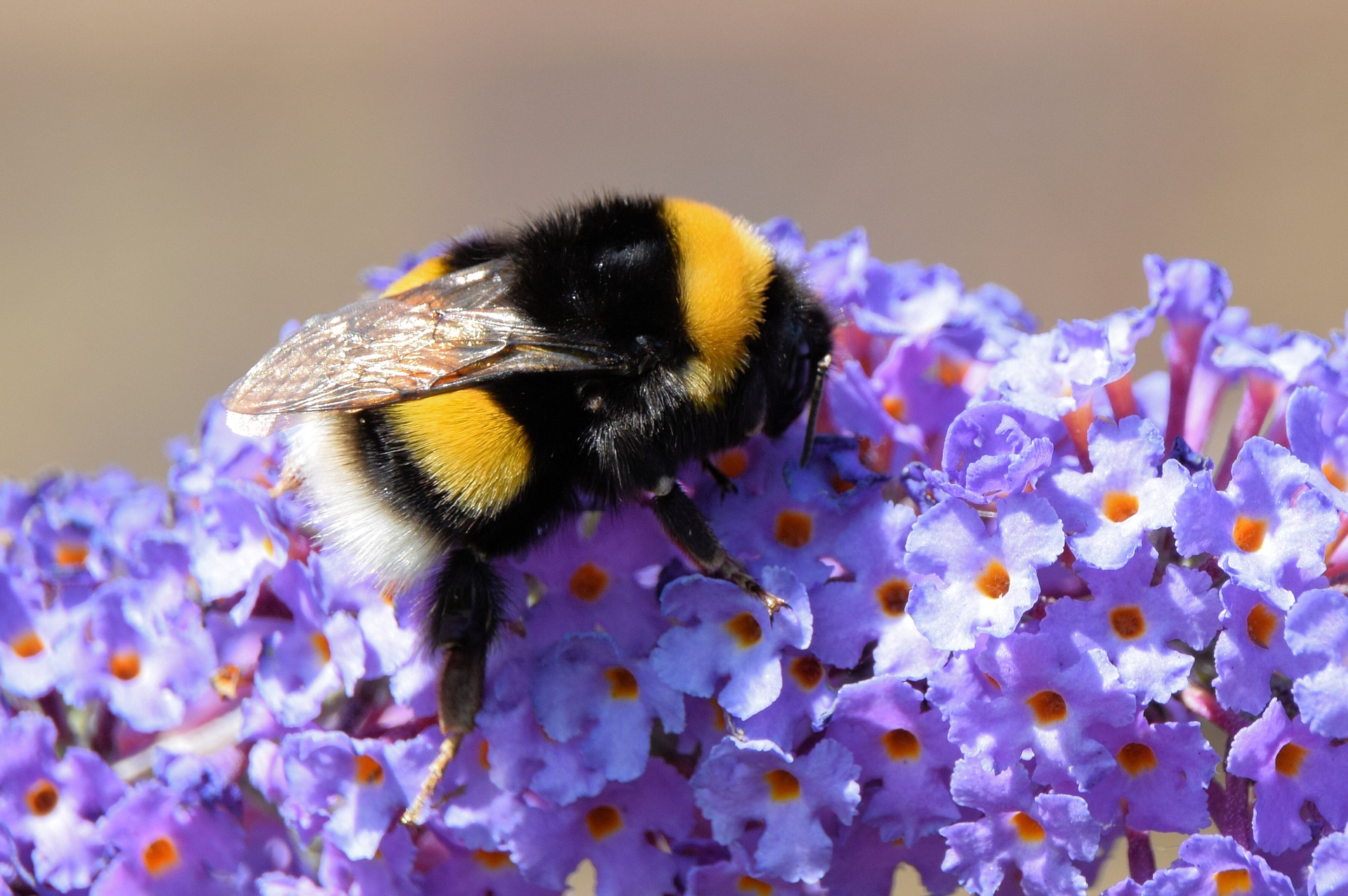We worked hard to pass the nation’s strongest ban on bee-killing pesticides. Now let’s make sure it’s enforced.

We’ve said it before, and we’ll say it again: Bees are in trouble.
Last year, Maine beekeepers lost 14% more colonies than the year before. And it’s not just honeybees that are suffering; a recent study found that more than half of all native bees, including some of Maine’s 270 species, are in decline, especially in areas with large rates of pesticide use.
Fortunately, our years-long campaign to Save the Bees came to fruition last summer when the Maine State Legislature passed a bill to protect these precious pollinators. Thanks in large part to grassroots action from our members, Governor Mills signed the nation’s strongest statewide ban on bee-killing pesticides (neonics) into law!
But we’re not in the clear yet. The next step is the rulemaking process, where the Board of Pesticides Control (BPC) hammers out the details of implementation and enforcement of the law. Currently, the board is considering delaying enforcement and creating a loophole for exemptions, against the Legislature’s intent.
The BPC is seeking public input, and we need your help to make sure this ban on neonics is implemented as swiftly and strongly as possible.
There are two ways to stand up for the bees:
1. Attend the virtual public hearing on Friday, Jan. 14 at 9 am: Join Environment Maine in sharing your thoughts on the proposed rules LIVE in front of the BPC. This is the most impactful way you can support this effort!
- Click Here To Join The Online Meeting or call 207-209-4724, conference ID: 440 033 928#
- SEE BELOW for more information about the law, suggested talking points, and tips on how to write and deliver effective testimony.
2. Submit written comments: The BPC is accepting written comments on the proposed rules until January 24. See below for background and talking points and be sure to add a personal note about why you care about protecting our pollinators. Email you comments to the attention of Megan Patterson, Director, at [email protected].
Background & Talking Points: Protecting Pollinators and Other Organisms In Our Landscape
In passing LD 155, the Maine Legislature directed the Board of Pesticides Control (BPC) to prohibit the use of four neonicotinoid pesticides (those containing the active ingredients dinotefuran, clothianidin, imidacloprid or thiamethoxam) in outdoor residential landscapes such as lawns, turf, or ornamental vegetation. The chemicals, often called neonics, are harmful to bees, butterflies and many other pollinators, as well as soil microbes, earthworms, reptiles, birds, aquatic organisms, and even mammals, like us.
Neonics are the most commonly used pesticides worldwide. While Maine’s law addresses only the landscaping use of these four neonics (it does not cover agricultural or forestry use), it is a critical step forward and represents the strongest regulation of this class of pesticides in the United States.
The law includes an exemption, allows licensed pesticide applicators to apply these neonics “to manage emerging invasive insect pests, such as the Asian long-horned beetle, emerald ash borer and hemlock wooly adelgid in order to safeguard the public health, safety and welfare of the State and to protect the natural resources of the State.” Unfortunately, BPC has proposed using a very broad definition of “invasive invertebrate pests” that goes far beyond the intent of the legislation and even includes native species.
Additionally, the Board is considering waiting another full year to implement and enforce the rule, but with the rapid rate at which bee populations are declining, we need to act now. We cannot let another growing season go by with these bee-killing pesticides on the shelves.
Based on these two concerns, please ask the BPC to:
- Narrow the scope of invasive species that could be treated with neonics by listing specific insect pests and the appropriate neonic(s) to use in their management. The definition currently proposed by the BPC is too broad and does not reflect the original spirit of the law.
- Act swiftly to protect pollinators from unnecessary poisoning of the residential landscape by removing the products already known to be bad actors off the shelf NOW.
Over the last few years, thousands of our members have raised their voices for Maine’s pollinators, calling for a statewide ban on bee-killing neonics. We can’t let this important law be weakened by rulemaking. Please join us in urging the BPC to act swiftly to protect Maine’s bees from unnecessary poisoning in crucial residential habitats. Our pollinators are in crisis; there is no time to wait.
Footnotes
- Go to Bee Informed Partnership’s Colony Loss Map, select “Total” under Loss Calculation tab, & “Annual” under Season Type
- biologicaldiversity.org/campaigns/native_pollinators/pdfs/native_bees_index.pdf
- environmentmaine.org/news/mee/governor-mills-signs-groundbreaking-bill-save-maine-bees
Topics
Authors
Anya Fetcher
Find Out More

How to avoid bee-killing pesticides

Why monoculture farming practices harm bees

A look back at what our unique network accomplished in 2023

